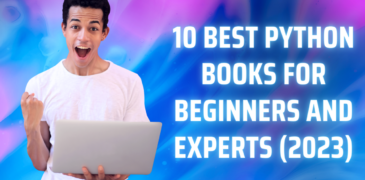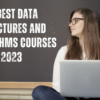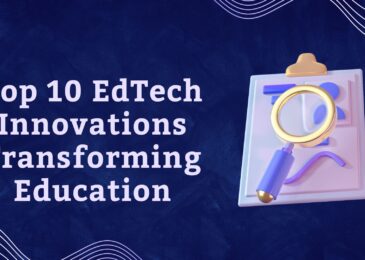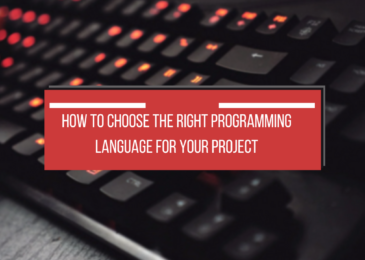Python, known for its simplicity and versatility, is one of the most popular programming languages today. Whether you’re a beginner taking your first steps into coding or an experienced developer looking to master Python, the right book can be your guide. In this curated list, we’ll introduce the 10 best Python books for beginners and experts in 2023. From comprehensive guides for newcomers to in-depth references for experienced programmers, these books cover a wide spectrum of Python topics, ensuring that there’s something for everyone on their journey to becoming a proficient Python developer. Let’s dive into the world of Python literature and choose the perfect resource to sharpen your Python skills.
“Python Crash Course” by Eric Matthes
“Python Crash Course” by Eric Matthes is a highly regarded book that offers an accessible and hands-on approach to learning Python. Geared toward beginners, it guides readers through fundamental Python concepts, syntax, and best practices. The book’s practical approach is exemplified through numerous coding exercises and projects, which progressively increase in complexity, ensuring a solid grasp of Python’s core concepts. It covers topics such as data structures, functions, classes, and even introduces basic game development. With its clear explanations and real-world examples, “Python Crash Course” is an excellent choice for anyone looking to start their programming journey with Python and build a strong foundation in this versatile language.
“Automate the Boring Stuff with Python” by Al Sweigart
“Automate the Boring Stuff with Python” by Al Sweigart is a practical Python programming book that focuses on using Python to automate everyday tasks and increase productivity. It’s an excellent resource for beginners looking to apply Python to real-world scenarios. The book covers essential programming concepts, file manipulation, web scraping, and more, all with a hands-on, project-based approach. Al Sweigart’s accessible writing style and clear examples make complex topics easy to understand. By the end of the book, readers will have the skills to create Python scripts that simplify repetitive tasks, making it an invaluable resource for both beginners and those looking to streamline their work with Python automation.
“Fluent Python” by Luciano Ramalho
“Fluent Python” by Luciano Ramalho is a book tailored for developers with some Python experience who want to deepen their understanding of the language. It explores Python’s features, idioms, and best practices, allowing readers to write more expressive and Pythonic code. The book delves into topics like Python’s data model, comprehensions, decorators, and metaclasses, providing insights into the inner workings of Python. Luciano Ramalho’s engaging writing style and practical examples make complex concepts accessible. “Fluent Python” is an essential resource for those looking to become proficient in Python and write elegant, efficient, and maintainable code in one of the world’s most versatile programming languages.
“Effective Python: 90 Specific Ways to Write Better Python” by Brett Slatkin
“Effective Python: 90 Specific Ways to Write Better Python” by Brett Slatkin is a concise and practical guide for Python programmers seeking to enhance their coding skills. Organized into 90 specific, actionable tips, the book offers insights and best practices for writing clean, efficient, and Pythonic code. It covers a wide range of topics, including data structures, functions, classes, and more, highlighting common pitfalls and providing solutions. Each tip is accompanied by examples and explanations, making it easy to understand and implement. Whether you’re an intermediate or advanced Python developer, “Effective Python” is a valuable resource to help you write more maintainable, readable, and effective Python code.
“Python for Data Science For Dummies” by John Paul Mueller and Luca Massaron
“Python for Data Science For Dummies” by John Paul Mueller and Luca Massaron is a comprehensive guide for aspiring data scientists and analysts looking to harness the power of Python for data analysis and manipulation. It covers essential Python tools and libraries, including NumPy, pandas, Matplotlib, and more, demonstrating their practical application in data science tasks. The book emphasizes hands-on learning with numerous examples and exercises, making complex concepts accessible to beginners. It also explores data visualization, machine learning, and data mining techniques. Whether you’re new to data science or want to enhance your Python skills, this book serves as an invaluable resource for mastering Python’s role in the data science field.
“Django for Beginners” by William S. Vincent
“Django for Beginners” by William S. Vincent is an excellent resource for anyone looking to learn web development with the Django framework. Geared towards beginners, it provides a step-by-step introduction to Django’s fundamentals, including building web applications, handling databases, and creating user interfaces. The book follows a practical, project-based approach, guiding readers through the process of building a fully functional web application. It also covers deployment and best practices for developing secure and scalable Django projects. William S. Vincent’s clear explanations and hands-on examples make Django accessible to newcomers, making this book an essential choice for those aspiring to become proficient web developers with Python and Django.
“Deep Learning” by Ian Goodfellow, Yoshua Bengio, and Aaron Courville
“Deep Learning” by Ian Goodfellow, Yoshua Bengio, and Aaron Courville is a comprehensive guide to the field of deep learning, particularly neural networks and deep neural architectures. It covers the theoretical foundations and practical aspects of deep learning, making it accessible to both beginners and experts. The book explores topics such as feedforward deep networks, convolutional networks, recurrent networks, unsupervised learning, and more. It also delves into the latest advancements in deep learning, including generative adversarial networks (GANs) and reinforcement learning. With clear explanations and practical examples, this book is an essential reference for anyone interested in mastering the principles and applications of deep learning in the modern era.
“Python Cookbook” by David Beazley and Brian K. Jones
“Python Cookbook” by David Beazley and Brian K. Jones is a valuable resource for experienced Python programmers seeking solutions to common coding challenges. The book provides a collection of practical recipes covering a wide range of topics, including data structures, algorithms, file handling, and more. Each recipe offers concise and well-explained code snippets that can be readily applied to real-world projects. It addresses complex tasks, such as text processing, concurrency, and network programming, making it an indispensable reference for developers looking to write efficient and maintainable Python code. Whether you’re a seasoned programmer or a Python enthusiast, this cookbook is packed with insights and practical examples to improve your Python skills.
“Natural Language Processing in Action” by Lane, Howard, and Hapke
“Natural Language Processing in Action” by Lane, Howard, and Hapke is a practical guide for developers and data scientists interested in working with natural language processing (NLP) using Python. The book covers essential NLP concepts and techniques, including tokenization, named entity recognition, sentiment analysis, and machine translation. It provides hands-on examples using popular NLP libraries like NLTK and spaCy, making complex NLP tasks accessible. The book also explores deep learning for NLP with TensorFlow and Keras. Whether you’re a beginner or an experienced practitioner, this book equips you with the knowledge and skills to tackle real-world NLP challenges and build intelligent applications that understand and generate human language.
“Test-Driven Development with Python” by Harry Percival
“Test-Driven Development with Python” by Harry Percival is a comprehensive guide to the practice of test-driven development (TDD) using Python. It teaches readers how to write robust and maintainable code by focusing on writing tests before implementing code functionality. The book covers the entire development cycle, from setting up a testing environment to writing unit tests, functional tests, and automated deployment tests. It also explores web development with Django and the Selenium framework. With practical examples and exercises, Harry Percival demonstrates how TDD can improve code quality, minimize bugs, and streamline the development process. This book is a valuable resource for Python developers aiming to adopt TDD as a best practice.
Conclusion
In the ever-evolving world of Python programming, the 10 best Python books for beginners and experts in 2023 offer a diverse range of knowledge and expertise. From “Python Crash Course” for novices, to “Effective Python” for intermediate developers, and “Deep Learning” for those exploring AI, these books cater to diverse learning needs. They delve into data science, web development with Django, automation, and NLP, providing a roadmap for Python mastery. Whether you’re starting your Python journey or aiming to refine your skills, these books offer valuable insights, practical examples, and guidance to excel in Python programming and its myriad applications.
Also Read:







